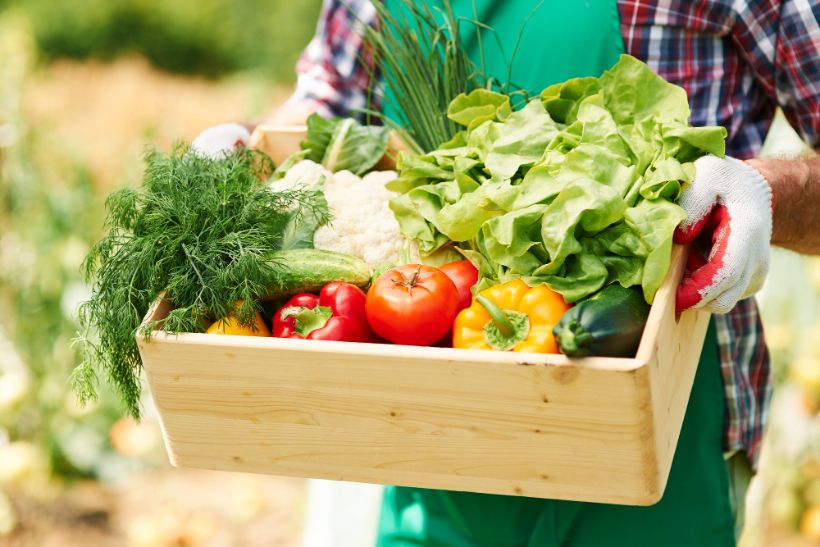Organic foods are known to taste a lot better, have significantly fewer pesticides and chemicals, and are more likely to be locally sourced however, purchasing organic produce can be at least 10% more costly compared to non-organic food items. Is the extra cost worth it? Let’s find out.
Commonly, vegetables and fruits available in the market retain a high volume of pesticides and other malevolent chemicals even after they have been washed. These harmful chemicals have been linked to in-vitro damage to fetuses and may bring estrogenic effects to people. While the increased level of pesticides within the body may not seem to be alarming, ingesting more chemicals may pose health risks in the long run. Thus, the solution is to turn to organic food.
What does organic food mean?
Produce grown organically is grown without synthetic fertilizers, sewage sludge, pesticides, and radiation. The seeds of organic fruits and vegetables have not been genetically modified to induce growth. As for organic meats, animals must be raised in an environment conducive to their natural behaviors. These animals should also be free from hormones and antibiotics, and they should be 100% organic-fed. Evidently, putting organic products on our table is not that simple. Certain criteria must be met, and developing more sustainable methods of farming is necessary.
Why does organic food cost more?
Here are the reasons why organic products can be more pricey compared to conventional food:
- Organic farming is more management and labor-intensive.
- Organic farms are usually smaller. In most cases, they do not benefit from the economy of scale.
- Organic farmers receive no federal subsidies because of their size.
- Organic food is reflective of the true price of growing.
Advantages of Organic Foods:
They taste better
While taste is purely subjective, more and more chefs realize the advantages of using locally sourced organic food in their cooking. These foods are more diverse and more in tune with local environmental needs. With the lack of pesticides, these chefs can also provide healthier meals to their patrons.
They are locally sourced
Because organic produce has not been treated with pesticides and growth-inducing chemicals, they tend to be more fragile for transport. As a result, much of the organic food found in grocery stores are supplied from a close location, often within 100 miles. These products are often transported soon after they are harvested or prepared, rather than spending days inside a shipping container.
They contain more nutrients
The Nutrition Research Center performed a comprehensive meta-study on whether organic foods have more nutrients than their non-organic counterparts. It was shown that organic foods were 75% more nutrient dense compared to their conventional counterparts. In addition, some organic superfoods contain vitamins, minerals, and antioxidants that can keep consumers healthier.
What organic foods should you purchase?
Organic Fruits
Pesticides can be absorbed by fruits and can change their chemical makeup. It is best to buy strawberries, blueberries, apples, grapes, and cherries that are organically grown. These fruits are eaten without peeling, and the skin of fruits is most exposed to pesticides.
Organic Vegetables
It is mostly better to purchase organically grown vegetables, especially organic leafy greens like kale and spinach. Pesticides may remain on vegetables despite thorough washing. Eating fruits with pesticides can defeat the purpose of “eating healthy”.
Organic Dairy
Unlike other organic products, organic milk and other dairies can already be easily found in supermarkets. They are known to have higher nutritional content than non-organic ones. For instance, organic milk is packed with more omega-3 fatty acids and antioxidants compared to regular milk. You may also opt for organic meat and organic poultry products. Finding the best organic superfoods in your area can also ward off certain diseases and promote a much healthier lifestyle.
According to the Environmental Working Group, the highest number of pesticides can be found in these foods, and organic options should be explored.
- Apples
- Celery
- Strawberries
- Peaches
- Spinach
- Nectarines – Imported
- Grapes – Imported
- Sweet Bell Peppers
- Potatoes
- Blueberries – Domestic
- Lettuce
- Kale / Collard Greens
In that same study, the fruits and vegetables with the least number of pesticides are:
- Onions
- Sweet Corn
- Pineapples
- Avocado
- Asparagus
- Sweet Peas
- Mangoes
- Eggplant
- Cantaloupe
- Sweet Peas
- Grapefruit
- Mushrooms
While there are many reasons to purchase organic foods, replacing all your food products at home with something organic can be impractical. Some fruits and vegetables which are peeled before consumption are generally safe as the chemical-laden skin is removed.
Also Read
Unknown Dangers of Toxic Household Products







